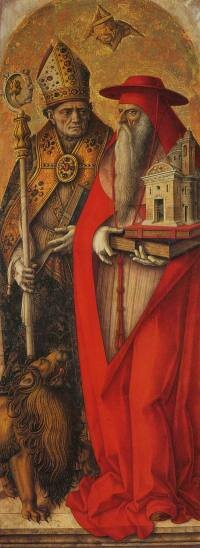 The historicity of Jesus (i.e., his existence as an actual historical figure), is accepted as a theological axiom by three world religions, Christianity, Islam and the Bahá’í Faith, based on their respective scriptures.
The historicity of Jesus (i.e., his existence as an actual historical figure), is accepted as a theological axiom by three world religions, Christianity, Islam and the Bahá’í Faith, based on their respective scriptures.The earliest known sources are Christian writings - the New Testament - which, according to modern historians, were written only 20-30 years after Jesus died.
However, while Christianity considers Jesus to be the Christ (Messiah) and Son of God, and Islam views him only as a prophet, secular historians and followers of most other world religions (including Judaism) tend to regard him as an ordinary human. Messianic Judaism, however, also considers Jesus (Yeshua HaMashiach) to be the Jewish Messiah.
With few exceptions (such as Robert M. Price), scholars in the fields of biblical studies and history agree that Jesus was a Jewish teacher from Galilee who was regarded as a healer, was baptized by John the Baptist, was accused of sedition against the Roman Empire, and on the orders of Roman Governor Pontius Pilate was sentenced to death by crucifixion.
Most scholars, however, agree that Jesus was an historical figure regardless of their perspectives on His teaching, His message of salvation, or statements about Himself.
Greeting to the Seven Churches
4 John to the seven churches that are in Asia: Grace to you and peace from him who is and who was and who is to come, and from the seven spirits who are before his throne, 5 and from Jesus Christ the faithful witness, the firstborn of the dead, and the ruler of kings on earth.
To him who loves us and has freed us from our sins by his blood 6 and made us a kingdom, priests to his God and Father, to him be glory and dominion forever and ever. Amen. 7 Behold, he is coming with the clouds, and every eye will see him, even those who pierced him, and all tribes of the earth will wail on account of him. Even so. Amen.
8 "I am the Alpha and the Omega," says the Lord God, "who is and who was and who is to come, the Almighty." (Revelation of Jesus Christ 1:4-8 ESV)
More...
 Case For The Resurrection of Jesus Dr. William Lane Craig
Case For The Resurrection of Jesus Dr. William Lane Craig
 David Gerald Littman (born July 4, 1933) is a British historian and a human rights activist at the United Nations in Geneva, representing various NGOs.
David Gerald Littman (born July 4, 1933) is a British historian and a human rights activist at the United Nations in Geneva, representing various NGOs.




